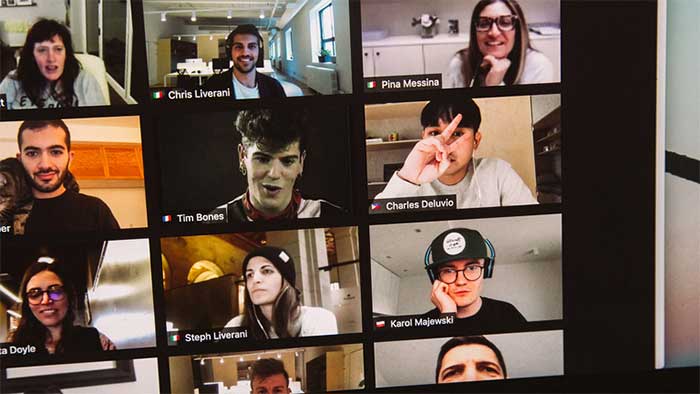Parkinson’s Law declares ‘work expands to so as to fill time available for its completion.’
by Andrew Thomas for Industry Week
Photo: Charles Deluvio/Unsplash
How many of us are being inundated with an ever-growing number of meetings on Zoom, MS Teams, WebEx, etc. each day?
With a larger portion of the workforce online and working remotely, it seems many organizations are seizing the opportunity to lock their employees into a constant meeting spiral. Knowing that folks are stuck at home is giving those who love meetings the opportunity to fill their colleagues’ schedules.
Google “Zoom fatigue” and you’ll get more than 35 million results. Those souls who now spend the bulk of their days staring at screens that glow regularly report symptoms such as tired and blurry eyes, headaches, low energy, and depression.
Neuroscientists have discovered that even as little as six weeks of such intense screen time is enough to alter the neuroplasticity of our brains: reducing our ability for deep reading and thought. To see how you are holding up, try to sit down and read a book for thirty minutes uninterrupted. If you find yourself terribly distracted, you are not alone.
This overload of activity should not be a surprise. Back in 1958, C. Northcote Parkinson published his seminal work, “Parkinson’s Law: Or the Pursuit of Progress.”
Parkinson’s Law declares “work expands to so as to fill time available for its completion.” In other words, the amount of work involved in doing something naturally adjusts to the time available in making it happen.
And, in much of our world today, that is the key: time available.
With many working folks now spending far less time commuting and avoiding business travel, more time has been “freed up.” In accordance with Parkinson’s Law, that gap gets filled with activity that wasn’t needed before. And, much of that activity is coming in the form of additional virtual meetings.
This is not to say that virtual meetings have no value. “Seeing” your colleagues in a different setting can humanize them in a positive way. Entering their homes through the screen and meeting their pets and family can soften the harder edges. Being together virtually also builds a sense of commonality.



